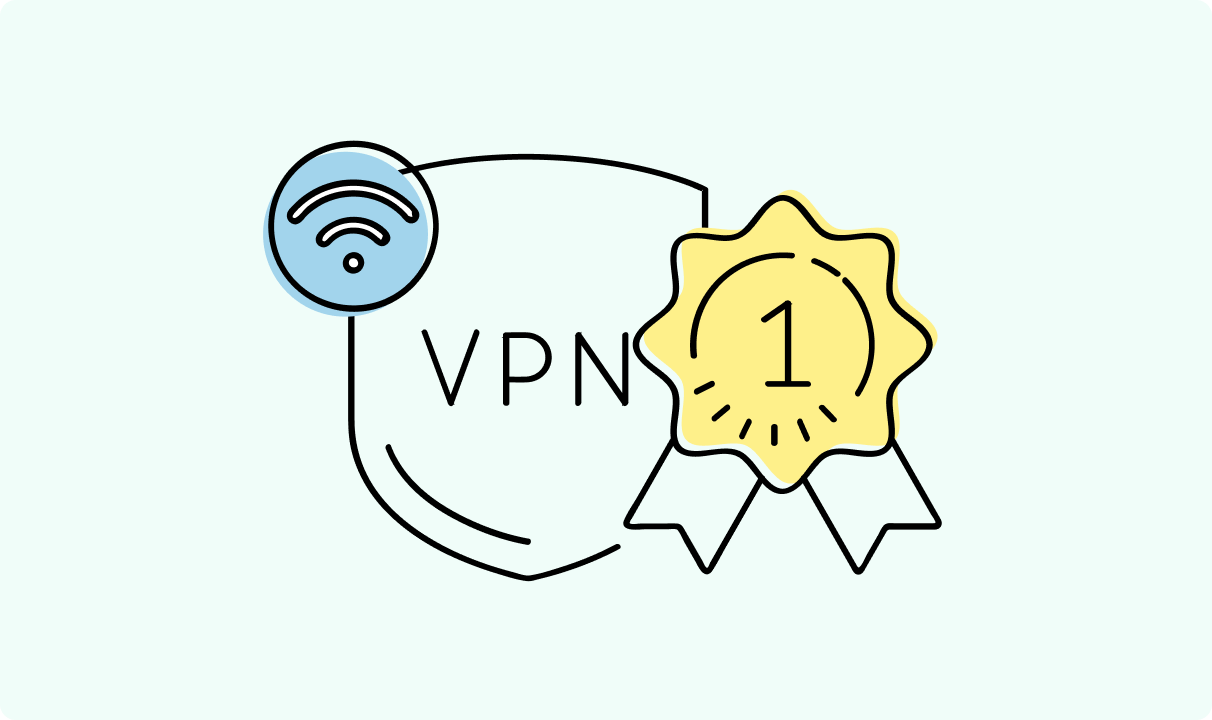What is VPN? How It Works, Types of VPN
A VPN, which stands for virtual private network, establishes a digital connection between your computer and a remote server owned by a VPN provider.

Adomas Šulcas
3 min read
How does a VPN work?
A VPN hides your IP address by letting the network redirect it through a specially configured remote server run by a VPN host. If you surf online with a VPN, the VPN server becomes the source of your data.
This means your Internet Service Provider (ISP) and other third parties cannot see which websites you visit or what data you send and receive online. A VPN works like a filter that turns all your data into "gibberish." Even if someone were to get their hands on your data, it would be useless.
What are the benefits of a VPN connection?
A VPN connection disguises your data traffic online and protects it from external access. Unencrypted data can be viewed by anyone who has network access and wants to see it. With a VPN, hackers and cyber criminals can’t decipher this data.
Secure encryption: To read the data, you need an encryption key. Without one, it would take millions of years for a computer to decipher the code in the event of a brute force attack. With the help of a VPN, your online activities are hidden even on public networks.
Not even your ISP or government will be able to access your data. That's why some authoritarian countires limit VPN use (Are VPNs legal in your country?) and various activists embrace them.
Disguising your whereabouts: VPN servers essentially act as your proxies on the internet. Because the demographic location data comes from a server in another country, your actual location cannot be determined.
In addition, most VPN services do not store logs of your activities. Some providers, on the other hand, record your behavior, but do not pass this information on to third parties. This means that any potential record of your user behavior remains permanently hidden.
Access to regional content: Regional web content is not always accessible from everywhere. Services and websites often contain content that can only be accessed from certain parts of the world. Standard connections use local servers in the country to determine your location.
This means that you cannot access content at home while traveling, and you cannot access international content from home. With VPN location spoofing, you can switch to a server to another country and effectively “change” your location.
Secure data transfer: If you work remotely, you may need to access important files on your company’s network. For security reasons, this kind of information requires a secure connection. To gain access to the network, a VPN connection is often required. VPN services connect to private servers and use encryption methods to reduce the risk of data leakage.
If you're still not convinced about why use a VPN service, check out other entries in our blog. Especially those comparing VPNs with other tools, like Proxy vs VPN.
Here’s how to surf securely with a VPN
A VPN encrypts your surfing behavior, which can only be decoded with the help of a key. Only your computer and the VPN know this key, so your ISP cannot recognize where you are surfing. Different VPNs use different encryption processes, but generally function in three steps:
- Once you are online, start your VPN. The VPN acts as a secure tunnel between you and the internet. Your ISP and other third parties cannot detect this tunnel.
- Your device is now on the local network of the VPN, and your IP address can be changed to an IP address provided by the VPN server.
- You can now surf the internet at will, as the VPN protects all your personal data.
If there are any issues, such as VPN not connecting, the encription is stopped and you might lose the protection. The best strategy to avoid it is to learn how to turn off VPN and activate it again quickly.
Why should I pay for a VPN service?
A free VPN, at best, will only be able to provide you with limited bandwidth, a small number of servers, or low speeds. Additionally, VPN servers are expensive to maintain, so any provider with a free version has to make up the loss elsewhere.
While a good VPN won’t store logs or track data, a free VPN service has to make money to stay in business. Some providers may opt to collect and sell data, since you’re routing all of your traffic through their services. Good VPNs that have paid plans won’t have to resort to such actions.

Author
Adomas Šulcas
Chief Operating Officer at Growth Bite
Adomas is a technical writing expert who founded Growth Bite, a digital marketing company, focused on providing high-value SEO and content marketing services to SaaS companies.
Related articles

4 min read
Best Residential VPN Providers in 2025
A Virtual Private Network (VPN) encrypts your traffic and hides your IP address. The way these functions are accomplished affects various aspects of your online privacy and security.
Here, we'll consider using residential IP addresses instead of those originating from a data center. A residential VPN has advantages compared to traditional ones, but there are some caveats. It all boils down to residential VPN providers.
The worst ones may even create more risks than benefits. We'll end this article with a list of the best residential VPN providers on the market.

Guoda Šulcaitė
4 min read
Ethernet vs Wi-Fi: Which One is Better?
Ethernet and Wi-Fi are the two main ways to connect your computer to the internet. While Wi-Fi has received significantly more attention in recent years, especially among consumers, due to its simplicity and flexibility, ethernet is still widely used in various other applications.
Even if Wi-Fi is significantly more popular, it isn’t strictly better. Both methods have their benefits and drawbacks. Wi-Fi’s popularity comes from its ease-of-use and flexibility, but an ethernet connection can be much more useful in certain scenarios.

Adomas Šulcas

5 min read
How to Change Chrome Proxy Settings: The Ultimate Guide
A proxy server is an easy alternative to a VPN that can perform most of the functions of the latter. It’s a server that stands between your device and the destination server, taking your connection requests and forwarding them in your name.
Destination servers in almost all cases see the proxy server as the originator of the request. As such, proxies are widely used in various, mostly business-related applications whenever privacy, security, location changing, and several other factors are at play.

Guoda Šulcaitė